Meet Jeffrey Katzenberg, the Hollywood veteran who went from dropping out of college to founding DreamWorks and creating struggling streaming service Quibi
Taylor Borden

- Jeffrey Katzenberg, the mind behind the new streaming service Quibi, is preceded by an impressive resume, from revitalizing Disney's animation in 1990s to cofounding DreamWorks.
- Katzenberg, 69, got his start in the mail room at Paramount Pictures, after dropping out of NYU during his first semester.
- He went on to spend a decade at Disney and to cofound DreamWorks in 1994.
- An early adopter of CGI animation, Katzenberg won the first Oscar in the Best Animated Feature category for 2001's "Shrek."
- Estimates of Katzenberg's net worth vary, but a Los Angeles Times article from 2016 put his net worth over $1 billion.
- A spokesperson for Quibi did not return Business Insider's request for comment on this story by publishing time.
Katzenberg, a New York City native, got his Hollywood start after dropping out of New York University as a freshman in 1970.
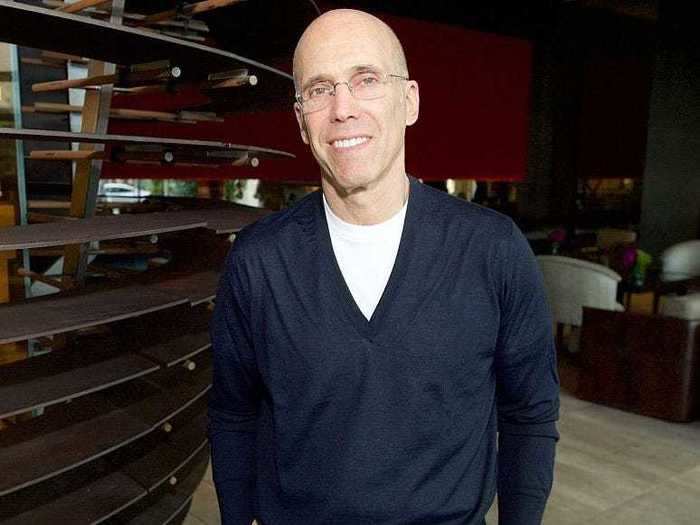
At age 14, Katzenberg had decided to volunteer for legendary New York City Mayor John Lindsay. He said his time with the Lindsay Administration earned him the nickname of "Squirt," and "set the course for [his] life as the short, scrawny adult in Hollywood."
It also taught him, as he later told Lindsay's chief of staff Jay Kriegel, the "supreme importance of minding the smallest details, of not accepting the bureaucratic 'no,' of returning calls, of staying focused on the big picture and, most of all, of always striving to do your very best to exceed expectations."
He went on to enroll in NYU — "because it was the closest to city hall" — but he dropped out during his first semester in 1970. In 2018, he told Stanford Graduate School of Business students that he thought he "could do better" working for the mayor than "in a college classroom." After dropping out of college, he continued to work for the mayor and held political organizer jobs until making the move to Hollywood in 1975.
Katzenberg's first Hollywood job was at Paramount Pictures, where he quickly climbed the ranks as media mogul Barry Diller's mentee.
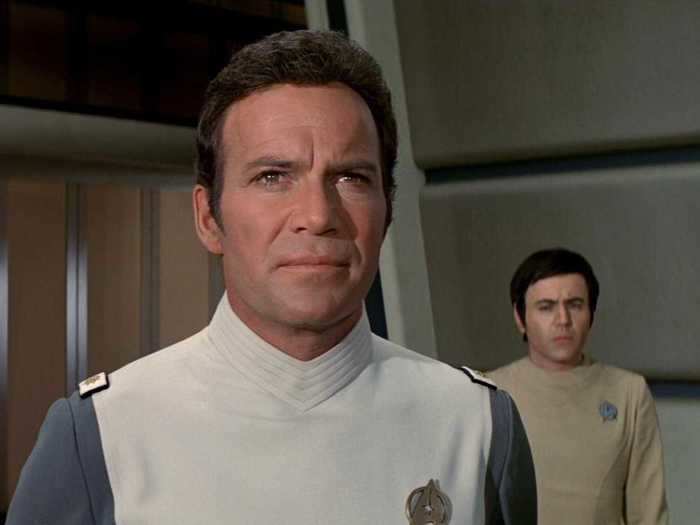
In 1975, Katzenberg began his Hollywood career in the mail room of Paramount Pictures at age 24. He then became Barry Diller's assistant. Diller, the legendary media mogul, was chairman at the time and became a mentor to Katzenberg.
"He invested in me," Katzenberg told Stanford students in 2018. With Diller's help, Katzenberg eventually worked on reviving the Star Trek franchise with 1979's "Star Trek: The Motion Picture," and was promoted to vice president of production at age 29.
"And I actually could do the job," Katzenberg said of earning the title at a relatively young age. "And the only reason I could do the job is because he had taken the time to actually train me and give me the resources to function in the job."
During his time at Paramount Pictures, Katzenberg worked on 1979's "Star Trek: The Motion Picture," 1980's "Raiders of the Lost Ark," 1984's "Beverly Hills Cop," and more.
Katzenberg made the jump from Paramount to Disney in 1984, where he became the chairman of film production.
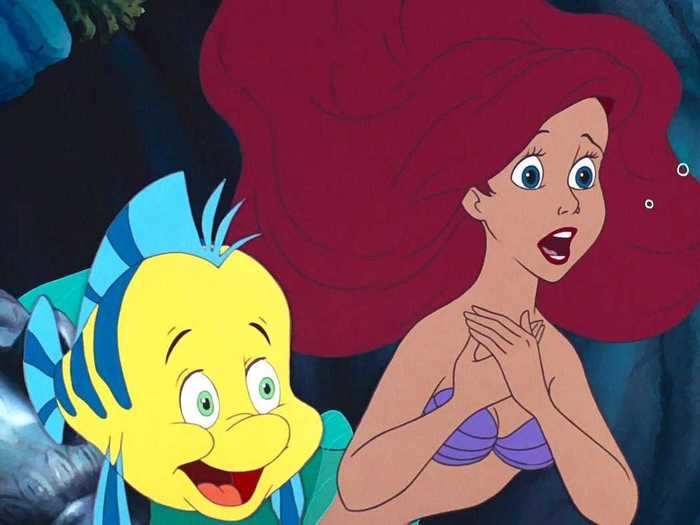
When Katzenberg joined the team in 1984, Walt Disney Studios was notoriously struggling with flopping films and declining earnings. He revitalized Disney's animated sector by overseeing hits like "The Little Mermaid," "Aladdin," "The Lion King," and "Beauty and the Beast," which became the first animated film to be nominated for Best Picture at the Oscars.
In the 1990s, Katzenberg told the Hollywood Reporter's Kim Masters that he had been promised a promotion to president of the company, but was passed over. After a public push and pull between Katzenberg and other Disney executives, he was ousted from the company in 1994, Masters wrote in a 2014 retrospective.
Later, Katzenberg sued Disney for breach of contract. According to Variety, he alleged that he was owed at least 2% of studio profits from his decade-long tenure — which would amount to $250 million. The lawsuit was settled in 1999, and while the final amount awarded to Katzenberg is unknown, it was expected to be in the hundreds of millions, per the Washington Post.
Upon leaving Disney, Katzenberg immediately joined forces with Steven Spielberg and David Geffen to found DreamWorks.
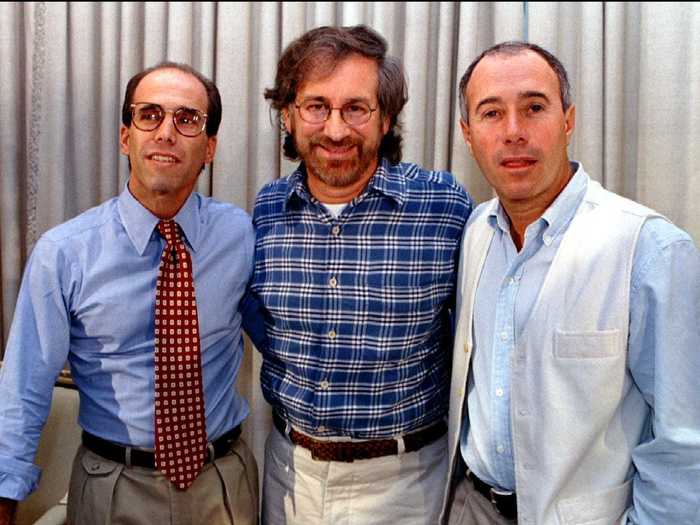
Katzenberg founded DreamWorks with movie mogul Steven Spielberg and billionaire David Geffen, a music industry veteran. The three were equal partners as executive producers.
Katzenberg's first film as executive producer was 1998's animated "The Prince of Egypt," which marked the studio's first attempt to be an alternative to Disney. The studio also made a name for itself with a series of critically acclaimed feature films. DreamWorks produced three back-to-back Best Picture Academy Award winners: "American Beauty" (1999), "Gladiator" (2000), and "A Beautiful Mind" (2001).
Katzenberg, however, was most focused on 3-D animation. He was responsible for 2001's smash hit "Shrek" — which grossed $484 million worldwide and won the first Academy Award for Best Animated Feature — 2004's "Shark Tale, " 2005's "Madagascar," and 2008's "Kung Fu Panda."
DreamWorks spun off its animation business into DreamWorks Animation in 2004. Katzenberg became the CEO of the new company. With him at the helm, ten of DreamWorks Animation's 27 features crossed the $500 million threshold worldwide. Seven features crossed the $600 million threshold.
Katzenberg remained the CEO of DreamWorks Animation until 2016, when NBCUniversal acquired the company for $3.8 billion.
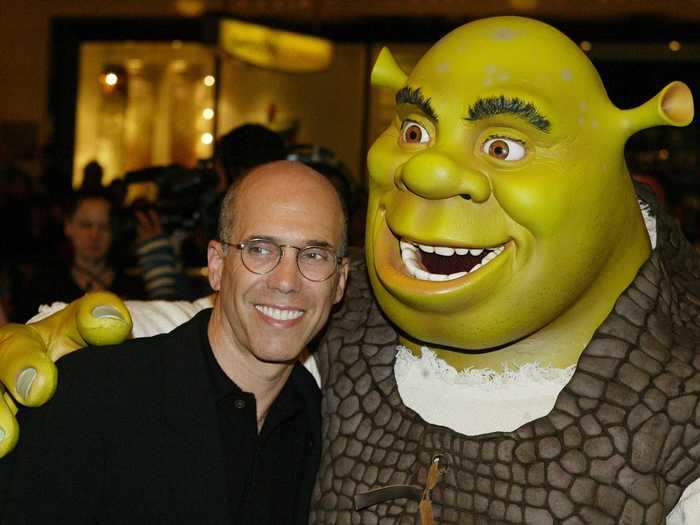
Fast Company's Nicole LaPorte reported that Katzenberg stepped down as CEO upon NBCUniversal's acquisition of DreamWorks in 2016. The deal, which amounted to $3.8 billion, netted Katzenberg $21 million and stock options worth over $400 million.
Following the sale of DreamWorks Animation, Forbes estimated that Katzenberg has a net worth of $900 million.
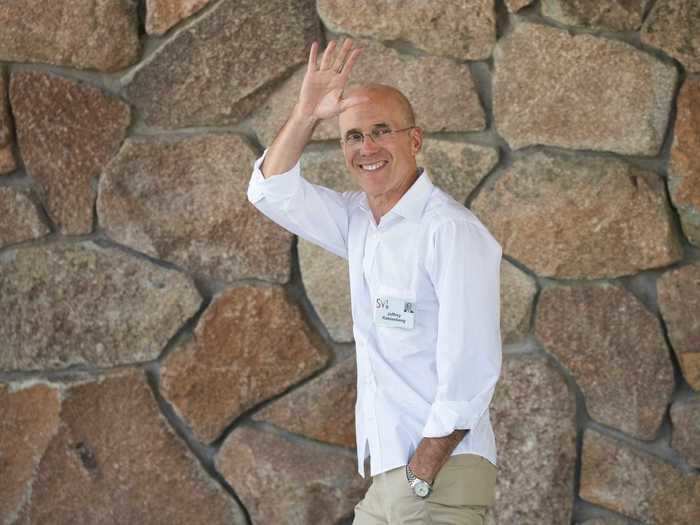
Katzenberg has been known to use his considerable wealth philanthropically. He and his wife, Marilyn, created a foundation in 1994, through which they donate roughly $2 million a year to various charities.
According to Inside Philanthropy, the Katzenbergs have donated to Boston University, where both their children attended college. While many of their donations further the arts — like $30 million to the Motion Picture and Television Fund Foundation — they've also donated to the American Heart Association, the ACLU, and the Human Rights Watch. They also serve on the board on Cedars-Sinai Medical Center.
Katzenberg has also given millions to the Democratic party. He gave $2 million to a pro-Obama super PAC in 2012, and matched that donation to a pro-Clinton super PAC in 2015. He donated to 14 Democratic hopefuls heading into the 2020 election.
Katzenberg's primary home is in Los Angeles. In addition to his philanthropy, he's been known to spend his money on secondary homes.
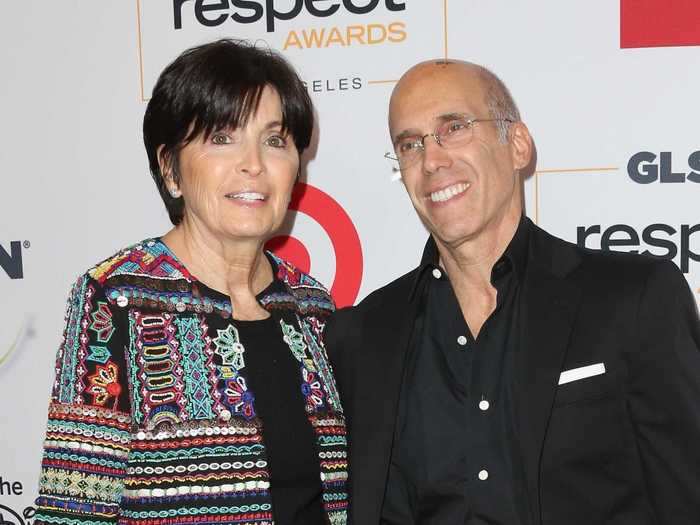
At one point, Katzenberg owned two homes in Beverly Hills. He sold one — a Mediterranean-style mansion — for a little over $9.3 million in 2012. The other is another Mediterranean-style estate that he bought for $35 million in 2009.
He also had 1.5 acres in Utah's ritzy Deer Valley for a time. He offloaded that cabin in 2019 for $11.6 million, per the Los Angeles Times. He previously listed the home in 2012 for $20.5 million.
He's known to drive a Tesla Model S.
In 2017, Katzenberg founded WndrCo, an investment company.
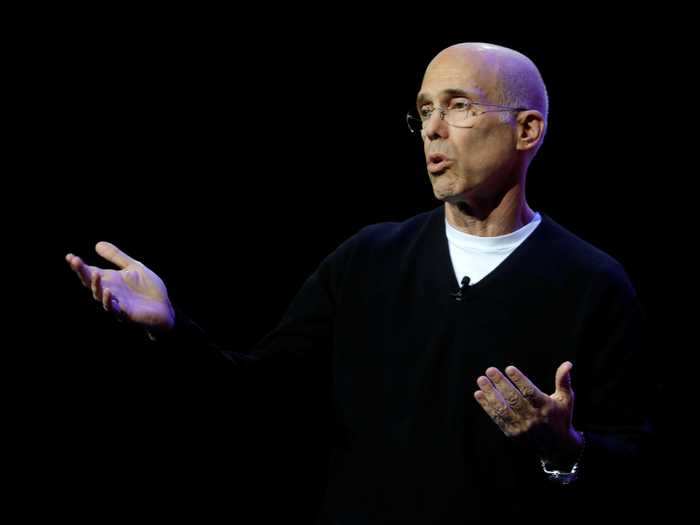
Katzenberg raised over $1 billion in capital for his California-based investment firm, WndrCo.
He partnered with former DreamWorks Animation President Ann Daly and former Dropbox exec Sujay Jaswa — mirroring the firm's purpose, to pursue investments at the nexus of technology and entertainment.
According to analysts, the model was similar to former mentor Barry Diller's IAC, a holding company which includes Vimeo, Ticketmaster, and more. WndrCo has made small investments in digital media companies like Axios and Whistle Sports.
WndrCo eventually became Katzenberg's vehicle to produce Quibi. Former colleagues told Business Insider that he was "obsessed" with the concept of creating a new form of TV for smartphones.
WndrCo eventually became Katzenberg's vehicle to produce Quibi, the subscription-video service that features short episodes made exclusively for mobile devices. It launched in April and has been struggling to take off.
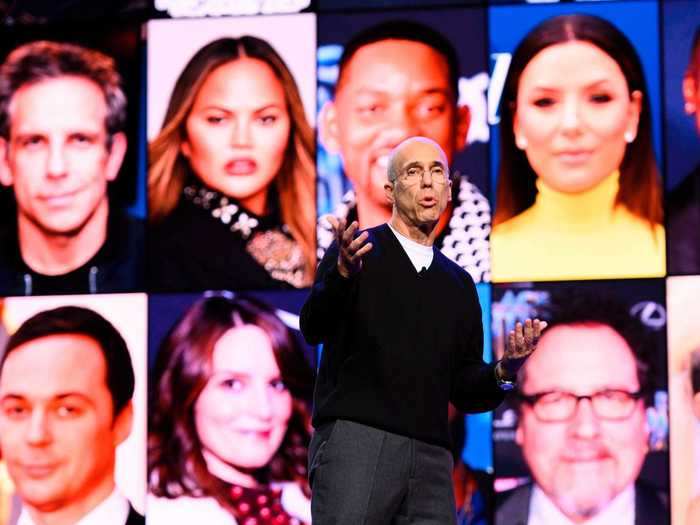
Katzenberg is the creative mind behind Quibi. His former colleagues told Business Insider that he was "obsessed" with the concept of creating a new form of TV for smartphones.
In January 2018, he hired former seasoned Silicon Valley mogul Meg Whitman as CEO and together they raised $1.8 billion from investors like Disney, Sony, and Alibaba group. They secured hundreds of millions in ad buys from major brands like PepsiCo. They ensured big budgets and big names, with content produced by former DreamWorks cofounder Spielberg and featuring actors like Idris Elba and Jennifer Lopez.
"Meg and Jeffrey have a long history of building strong brands and tech platforms from the ground up," a Quibi spokesperson previously told Business Insider. Insiders told Business Insider's Ashley Rodriguez, Tanya Dua, and Becky Peterson that Katzenberg, while not responsible for day-to-day operations, was "the driving force behind the most crucial aspect of the business: its content." They detailed Katzenberg as deeply involved in every aspect of the company, even in decisions as minute as wardrobe.
The content, however, has yet to connect with viewers.
Quibi, short for "quick bites," was designed to be a streaming service imagined for viewers on the go. But it debuted in a world where viewers were almost certainly staying put amid a global pandemic.
In a May 11 interview with the New York Times, Katzenberg blamed the coronavirus for "everything that has gone wrong" for the app, which launched in April.
Quibi has been growing sluggishly: It was only downloaded 1.7 million times its first week in the app store. It has now been downloaded 4.6 million times. For context, its initial goal was 7 million paying subscribers within the first year.
READ MORE ARTICLES ON
Popular Right Now
Popular Keywords
Advertisement